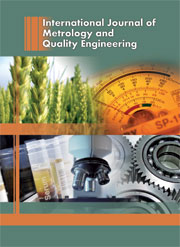Article contents
Measurement quality and uncertainty evaluationin civil engineering research
Published online by Cambridge University Press: 07 November 2013
Abstract
Civil engineering is a branch of science that covers a broad range of areas where experimental procedures often plays an important role. The research in this field is usually supported by experimental structures able to test physical and mathematical models and to provide measurement results with acceptable accuracy. To assure measurement quality, a metrology probabilistic approach can provide valuable mathematical and computational tools especially suited to the study, evaluation and improvement of measurement processes in its different components (modeling, instrumentation performance, data processing, data validation and traceability), emphasizing measurement uncertainty evaluation as a tool to the analysis of results and to promote the quality and capacity associated with decision-making. This paper presents some of the research held by the metrology division of the Portuguese civil engineering research institutes, focused on the contribution of measurement uncertainty studies to a variety of frameworks, such as testing for metrological characterization and physical and mathematical modeling. Experimental data will be used to illustrate practical cases.
- Type
- Research Article
- Information
- International Journal of Metrology and Quality Engineering , Volume 4 , Issue 2 , 2013 , pp. 127 - 134
- Copyright
- © EDP Sciences 2013
References
- 1
- Cited by


